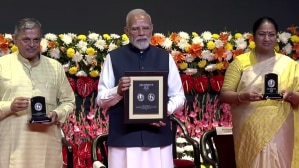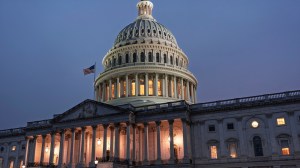Now, in South Asia
Thirty writers, five countries, three days, six sessions. Last week, the Women’s Initiative for Peace in South Asia (WIPSA) had organis...

Thirty writers, five countries, three days, six sessions. Last week, the Women’s Initiative for Peace in South Asia (WIPSA) had organised a Dialogue of South Asian Women Writers. What did it mean? What difference did 30 women sitting together on the outskirts of Delhi, make? Will their voices ever reach places where decisions on war and peace are made? My contention as one of the organisers of this dialogue is that they will; it’s a matter of time.
Zehra Nigah of Pakistan, who really belongs to all of South Asia, inaugurated the event with her poem, ‘The Story of Gul Badshah’, about a 13-year-old boy caught in the war against terror in Afghanistan and ‘Suna Hai’ (I have heard about the law of the jungle which is more humane than the law of human civilisation). The words of her poem surprisingly became the thread on which all the sessions were strung. The sessions ranged from “women writing peace” to “women writing identities” to “women writing freedom”. The concluding theme posed the question: Can women make another world possible?
Clearly, the idea of the writer as an activist was the predominant one. Take Pratibha Ray from Orissa. Her story, ‘Is the colour of religion Black?’, is a protest against the ban on light-skinned people entering the Jagannath temple on suspicion that they are not Hindus. Or Mari Marcel Thekakara of Karnataka, on the subject of ‘Endless Filth’, which is also the title of her book about manual scavenging. Or Faustina Bama of Tamil Nadu, talking of the ‘peace of the graveyard’ when it comes to the subalterns of society.
There were writers against war, with Niaz Zaman of Bangladesh tracing women’s activism against war to the Aristophanes’ play Lysistrata. Writers like Naseem Shafai from Kashmir, Mitra Phukan from Assam, Sugatha Kumari from Kerala, all wanted to know why their “beautiful land” has been rendered unrecognisable. Zahida Hina of Pakistan in her story, ‘Kumkum bahut aaraam se hai’ (Kumkum is very well), sketched the horrors of the Afghan war, linking it to Tagore’s Kabuliwalla. Manjushree Thapa of Nepal spoke of young girls conscripted by the Maoists, high up in the mountains of her country.
Atiya Dawood of Pakistan spoke about her fear of the Mohajirs during the deadly Sindhi-Mohajir conflict in Karachi. Sumathy Sivamohan, Tamil writer from Sri Lanka, read her poems on her conflict-torn land. Gujarat was recalled through the voices of Sarup Dhruv and Gitanjali Shree, while young writers from Pakistan — Uzma Aslam Khan and Kamila Shamsie — reminded listeners of the police lathis being wielded on the streets of Lahore against women protesting the Hudood Ordinances.
All these voices from South Asia were part of a far larger community of women writers from the world over who have together decided to deploy their pen for peace in their times and in their regions.



- 01
- 02
- 03
- 04
- 05




























